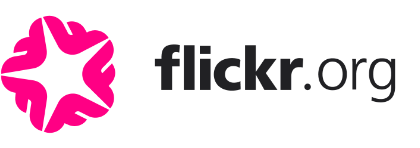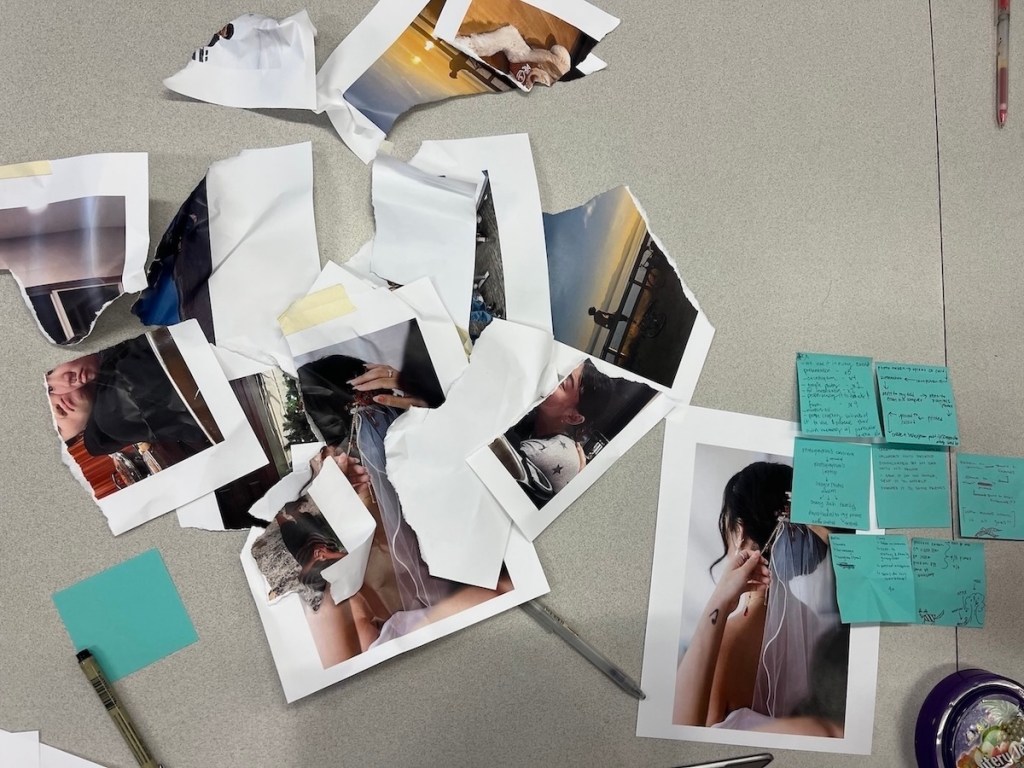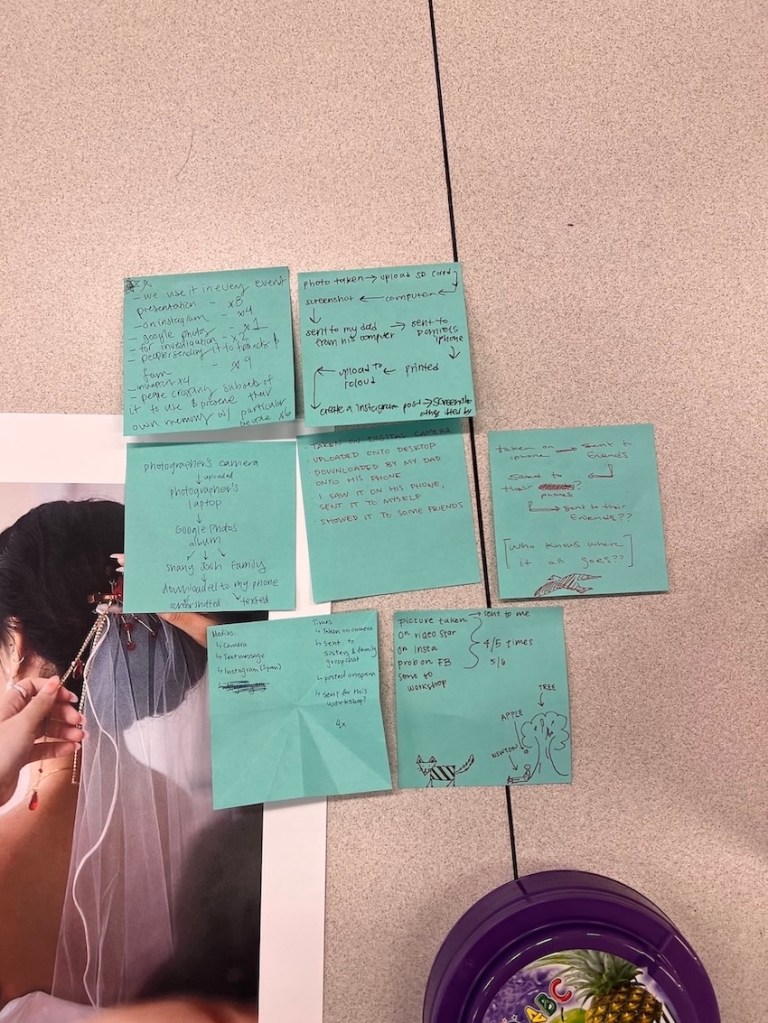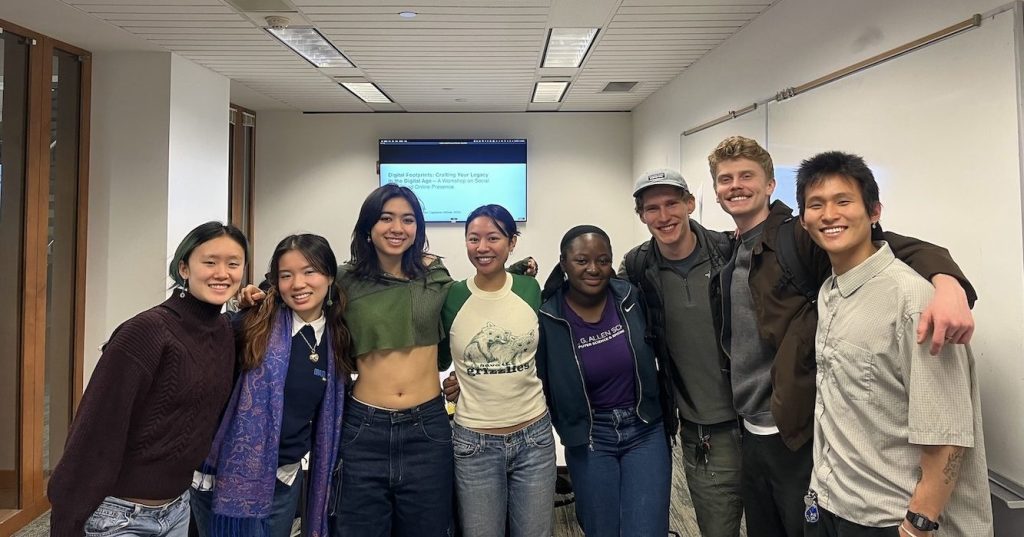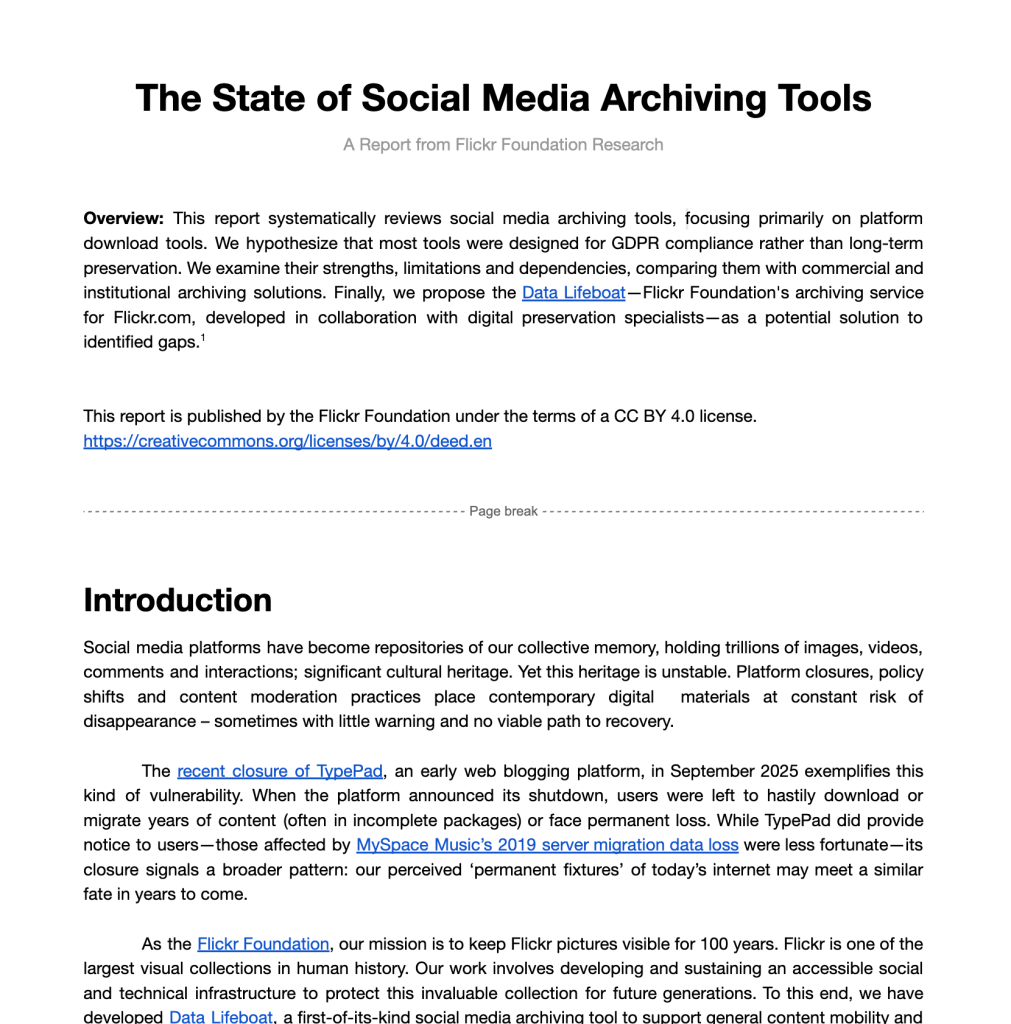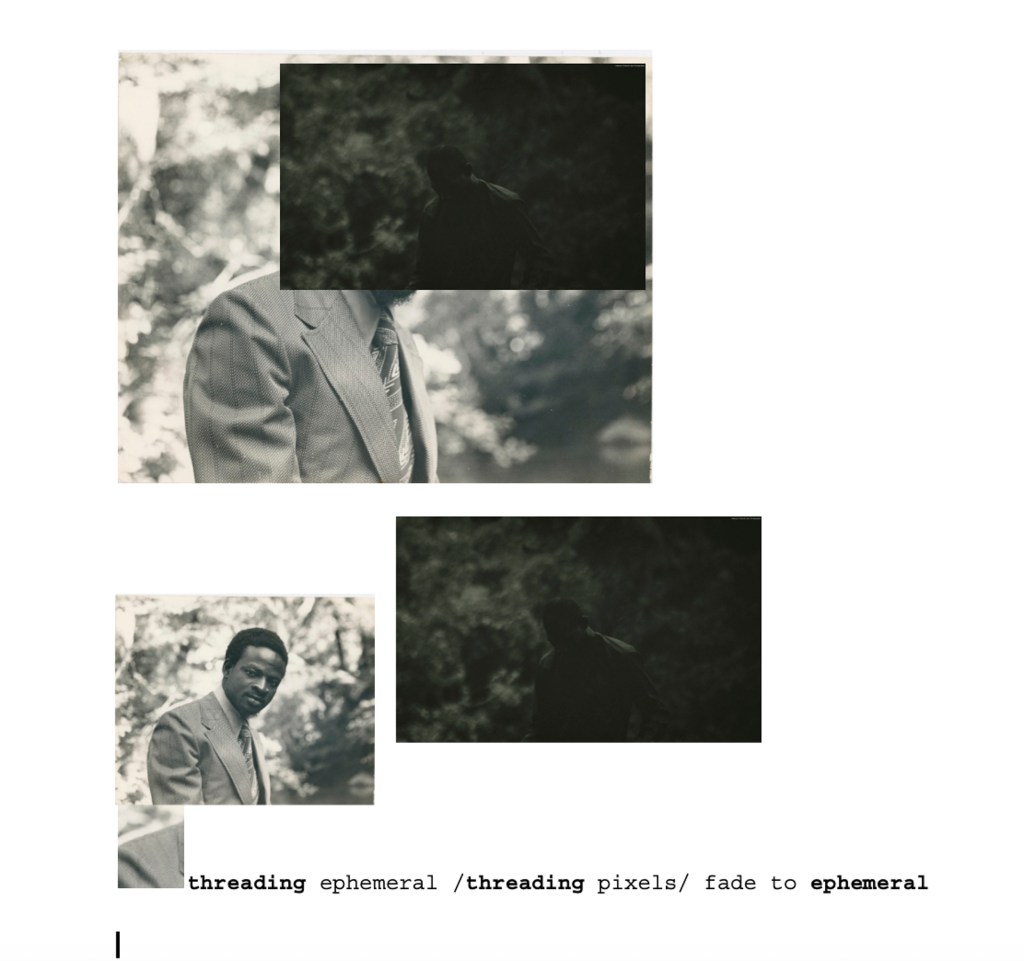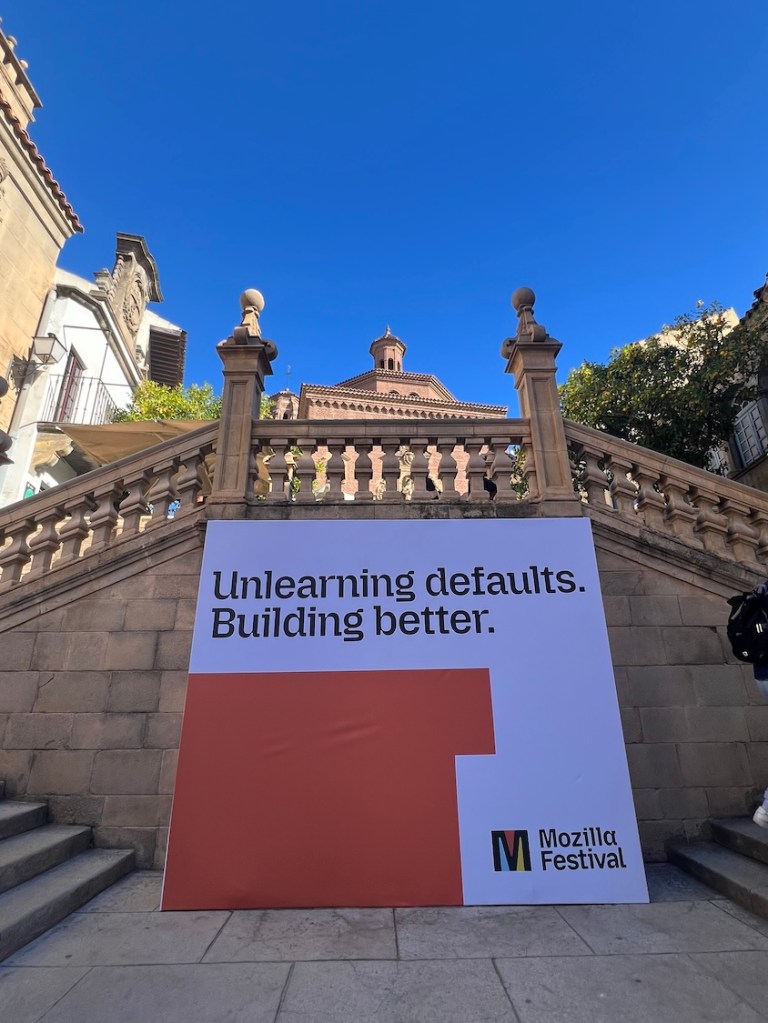Hi there! It’s Amy Sun and Daniel Kim again, two seniors at the University of Washington Informatics program with a focus on UX/UI design. We’re currently working on a capstone project with the Flickr Foundation on digital preservation, digital legacy, and the many nuances and considerations that come alongside those.
This is the last of our blog posts about our Capstone project (here are Part One and Part Two), in this post, we wrap up our project and collaboration with the Flickr Foundation, reflect, and conclude on our design journey.
Running our first co-design workshop
Our pilot workshop ran on March 11th, 2025 with eight participants, including the two of us. We asked all participants to submit a photo they believed should be preserved for 100 years, and conducted two activities based on the photo they submitted.
Activity #1: Physical vs Digital Planning
After printing out physical copies of the photo, we asked each of the participants to describe the significance of the photo they submitted. 7 out of the 8 photos were of family and friends, and preserved for the purpose of family and friends to look back on. The last photo was of members of a diverse computer science club, and preserved for the purpose of the club’s mission. Following participant’s descriptions of these photos, as a provocation, we ripped the physical photos to shreds to symbolize the deletion of photos online. We then observed participants’ reactions to this. In discussion they concluded that although it was shocking and visceral, as long as the memories associated with the photo were still well and alive, losing a physical copy of it is okay.
Activity #2: Ownership & Autonomy
In this activity, we asked all the participants to trace the number of times the photo has been shared since its inception – whether through uploading to a platform, messaging it to a family group chat, or even printing it out for the workshop. Our participants’ answers ranged from five times to fifty times, with the highest outliers being from a) a photo competition in which it was shared for public voting, and b) the club photo having multiple people in it, therefore having shared ownership of the photo. We noted that most family photos were shared with only family through platforms like Facebook, Messages, and Instagram.
Activity #3: Reflection
In our final activity, we asked our participants now that they had the words to describe preservation and legacy, what steps would they take to preserve photos intentionally? Their answers varied, some talking about physical hard drives, saving to multiple devices, printing the photo, and even giving up ownership of the photo so that someone else or the public would access it.
Learnings and limitations
This workshop helped us confirm what we believed about Gen Z – in that we need literacy for preservation in order to understand and care for it. With the internet growing so exponentially, it’s hard for us as a generation to stop and think about the impact of our photography and digital presence. The workshop participants expressed their newfound interest in the topic, and were very engaged in all the discussions we had about the concepts of preservation. We found that the participants were the most interested in sharing their experiences with the photos they submitted because of the personal aspect of the workshop, and enjoyed learning about each others’ photos as well.
As a capstone team, we felt that we had accomplished what we meant to do with having these discussions, but there is always more work to do. This workshop went well, but our recruitment timeline was extremely short, meaning we had to pull a lot of our friends to come. In a future run of the workshop, we want to make sure that we have a long enough recruitment timeline – such as two or more weeks in order to build up enough interest from circles that aren’t our immediate ones. We also felt that although there were productive discussions, the participants didn’t necessarily have enough time to think on their own before hearing each other’s thoughts, resulting in a lot of similar answers and agreement. In future runs, we want to build in more time for participants to think and marinate on their own before moving into a group discussion.
With the workshop over, we anticipate sending out a feedback survey and reflection form to our participants in a month, to understand what concepts stuck with them and have changed the way they view social media and/or digital preservation. We hope to potentially run the workshop again at the UW Undergraduate Research Symposium to collect more information, and get more feedback on how this could be passed on to another passionate team of preservation enthusiasts.
Next Steps
Having concluded our workshop and findings, and presented to our mentor team, we find ourselves somehow at the finish line of our capstone project. This entire project has taught us much about the concepts of digital legacy and preservation, as it relates to us and our generation, as well as intentional usage of social media and photography, and finally about the digital capacity of us as people. It calls us to ask, how can we be sustainable when so much of our information is cluttered online? Lastly, we’ve learned so much as individuals working in a professional environment – a huge thank you to the Flickr Foundation team and community for being so patient with us and inviting us into the space, especially Tori and George for their mentorship & guidance through these months! We’ve learned so much about the design and research process, and gained professional communication skills that will follow us throughout our future careers! Again, a huge thank you to Flickr Foundation and our professor Dr. Odumosu for everything we’ve learned throughout this project, we could not have done it without you! Thank you so much!
